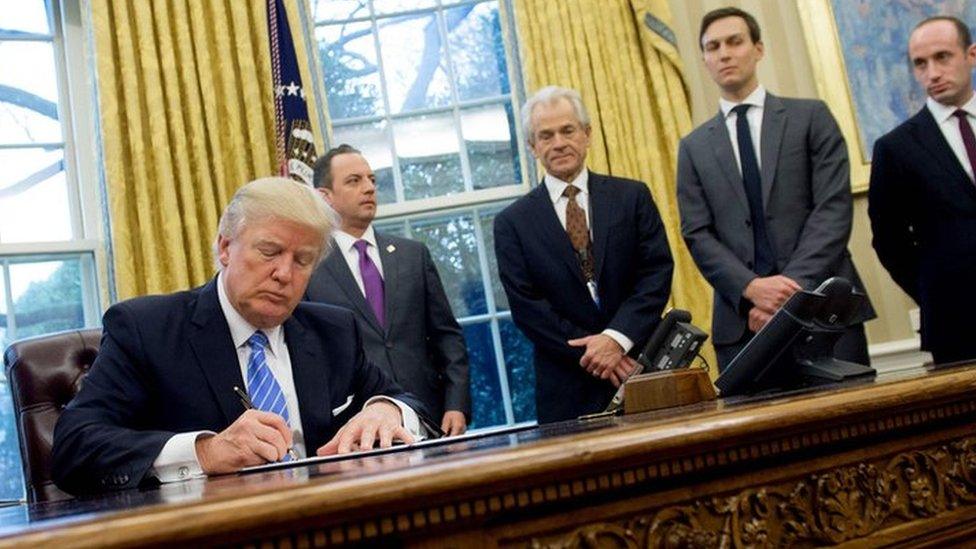US abortion doctor says 'I'm not going to live in fear'
- Published
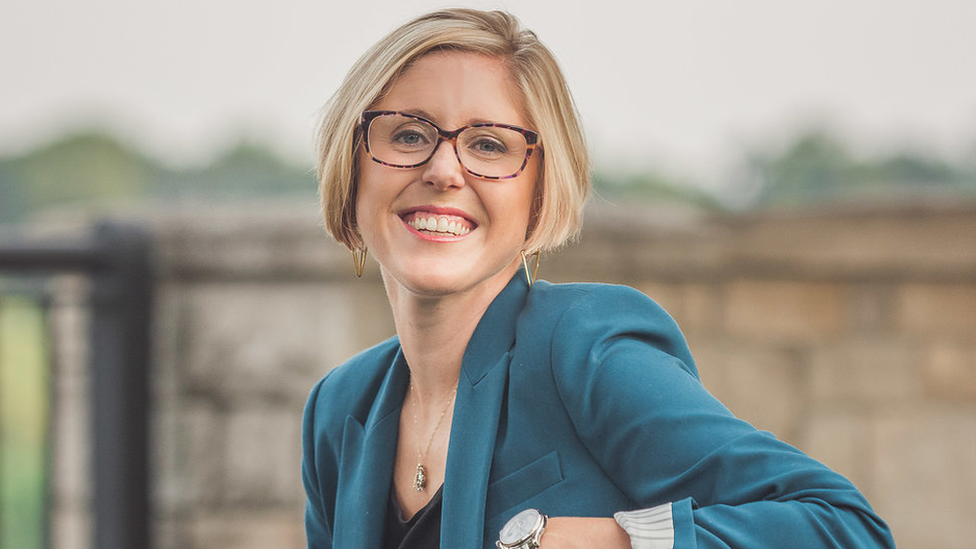
Like many women, Colleen Krajewski finds first dates a bit awkward but until recently she had the additional pressure of trying to dodge the question of what she does for a living.
"Once you tell a guy you're an abortion doctor, that's usually it," said Dr Krajewski, a gynaecologist in Pennsylvania, US.
"There was one guy who was being very forward at the end of a date and I told him I had to work the next day.
"He was surprised and asked who for. I told him what I did and he instantly said, 'I'm a Catholic' and backed off."
Fed up with the stress of trying to draw a line between her private and professional lives, Dr Krajewski decided to face the issue head-on.
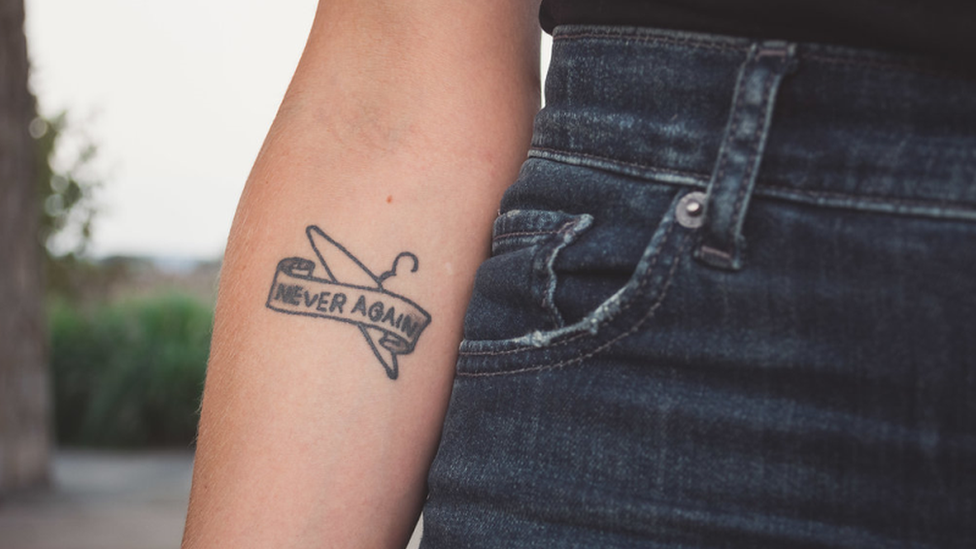
She had a coat hanger and the words Never Again tattooed on her arm.
It's the symbol of pro-choice supporters, external who want women to have easy access to medical terminations rather than rely on unqualified backstreet practitioners.
"I decided I needed to make a moral stand and be more open about what I am and what I do," she said.
"I keep my tattoo covered at work but occasionally people see it and comment."
'Friends judge me'
Abortion has been legal in the US since 1973 but because of rulings in individual states it can be difficult for women to access.
A recent study published in the medical journal the Lancet, external found that in 2014, 20% of American women had to travel a distance of 42 to 54 miles (68-86km) or more to get to their nearest clinic. This increased significantly for women living in rural areas, with at least half in Wyoming, North Dakota and South Dakota having to travel more than 90 miles (145km) to get to abortion services.
Abortion doctors in the US regularly find their names, addresses and phone numbers published on websites by those who oppose their work but Dr Krajewski refuses to be intimidated.
"I'm not going to live in fear. I'm more likely to encounter common violence than something to do with my job," she said.
"I had one boyfriend who considered moving in with me until his mother got concerned about his safety."
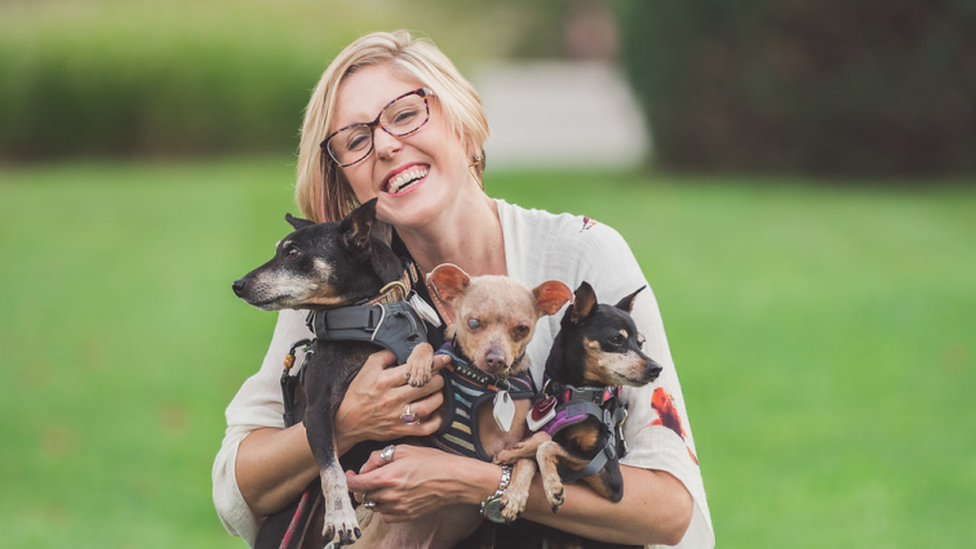
And it's not just the potential partners who treat her differently from other women.
"Even friends judge me," she said.
It's not unusual at a party for her to be taken to one side by a stranger who then quietly recounts the tale of their own abortion.
"How does she know what I do?" Dr Krajewski protested. "They must have had a conversation about me before I got there.
"People don't want to talk about the other things I'm passionate about, like my dogs."
Dr Krajewski is fiercely loyal to her patients, whom she describes as "fascinating, strong and complicated".
Six out of 10 of the women who come to her for terminations are already mothers who want an abortion for a range of reasons, including no support from their partner, a lack of money, and occasionally foetal abnormalities.
For Dr Krajewski her office is always a "judgement-free zone" but sometimes her patients' attitudes to each other can shock her.
"What makes me saddest is when my patients judge each other," she said. "That just hits me in the gut.
"Some women are not able to differentiate herself from others on a moral basis and say things like, 'My abortion is necessary.' They need to make their abortion different, special or morally correct because abortion is still stigmatised and shamed.
"Sadly we are going backwards in this country in terms of abortion because people are so afraid to talk about it."
By Annie Flury, UGC and Social News team
- Published5 October 2017
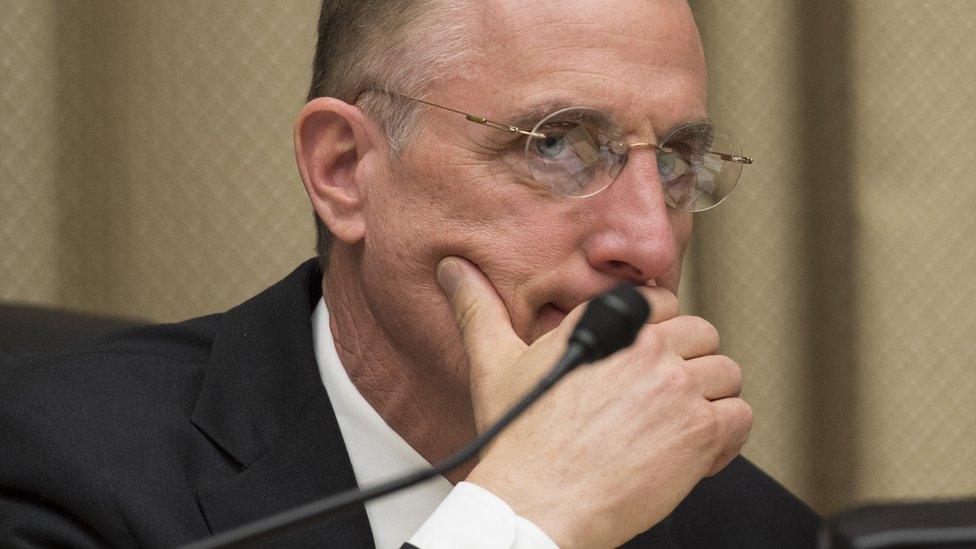
- Published24 January 2017
